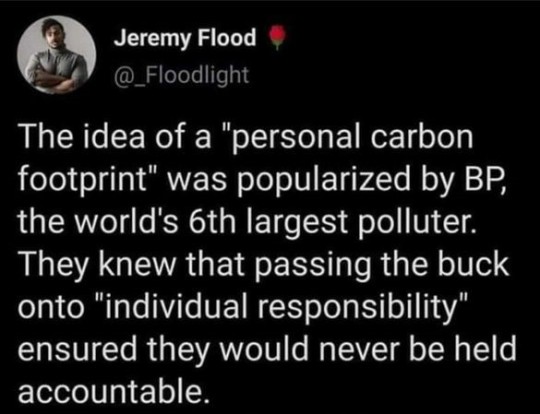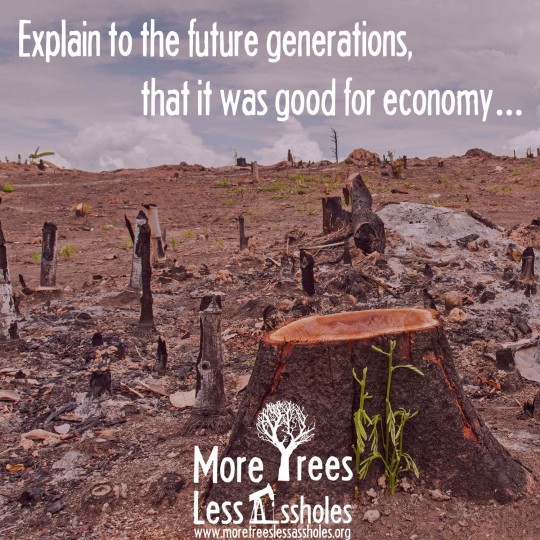#carbon pollution
Link
New York Times article, April 10, 2023
Texas was gasping for electricity. Winter Storm Uri had knocked out power plants across the state, leaving tens of thousands of homes in icy darkness. By the end of Feb. 14, 2021, nearly 40 people had died, some from the freezing cold.
Meanwhile, in the husk of a onetime aluminum smelting plant an hour outside of Austin, row upon row of computers were using enough electricity to power about 6,500 homes as they raced to earn Bitcoin, the world’s largest cryptocurrency.
The computers were performing trillions of calculations per second, hunting for an elusive combination of numbers that Bitcoin’s algorithm would accept. About every 10 minutes, a computer somewhere guesses correctly and wins a small number of Bitcoins worth, in recent weeks, about $170,000. Anyone can try, but to make a business of it can require as much electricity as a small city.
In Texas, the computers kept running until just after midnight. Then the state’s power grid operator ordered them shut off, under an agreement that allowed it to do so if the system was about to fail. In return, it began paying the Bitcoin company, Bitdeer, an average of $175,000 an hour to keep the computers offline. Over the next four days, Bitdeer would make more than $18 million for not operating, from fees ultimately paid by Texans who had endured the storm.
The New York Times has identified 34 such large-scale operations, known as Bitcoin mines, in the United States, all putting immense pressure on the power grid and most finding novel ways to profit from doing so. Their operations can create costs — including higher electricity bills and enormous carbon pollution — for everyone around them, most of whom have nothing to do with Bitcoin.
15 notes
·
View notes
Text

Deadly Ocean Heat 🌊 🔥🥵
Coral around the world is turning white and dying as ocean surface temperatures rise at record levels due to the problem of human-caused #climatechange (#carbon emissions and #pollution).
📸 The Great Barrier Reef - a World Heritage Site
https://www.bbc.com/news/science-environment-68814016
0 notes
Text
NASA Announces Summer 2023 Hottest on Record

#NASA#climate#climate record#fossil-fueled#climate change#global warming#climate crisis#climate disruption#climate spiral#carbon pollution#environment
0 notes
Photo

Have you ever seen such audacity?
18K notes
·
View notes
Link
The analysis of data from 2019 highlights “significant inequalities” in energy use across the country. Those in the top 10% of incomes used nearly three times as much energy in a year as people in the bottom 30%.
This was particularly true for transport. Car journeys and flights taken by the richest British people – especially “white, wealthy middle-aged men” – used more energy that year than 60% of the population got through in total.
The authors of the study, published in Ecological Economics, say energy consumption is currently “too high” to achieve the world’s climate targets, even as many indulge in “excess energy use” while millions languish in fuel poverty.
Yet, by combining their energy analysis with measures of wellbeing, they conclude that a high standard of living can be achieved in the UK with relatively low levels of energy consumption.
(...) Those in the global north are known to be disproportionately responsible for both energy use and greenhouse gas emissions. The average person in the UK uses roughly four times as much energy in a year as someone in India and 21 times as much as someone in east Africa. But within these relatively high-income nations there are large variations in wealth and the energy intensity of people’s lifestyles.
The inequality is huge. In 2019, the wealthiest 10% of people in the UK used around three times as much energy driving cars and five times as much for recreational activities, when compared to the bottom 10%.
One of the greatest disparities came from people’s use of planes. Domestic and international flights taken by people with the highest incomes used around five times more energy than those taken by the poorest.
In fact, as the chart below shows, the 102 gigajoules (GJ) used for flying by the average adult in the top 10% of earners in that year was more than the average person in the bottom fifth of earners used for everything, including flying, driving and heating their homes.
Baltruszewicz and her team were also able to assess who precisely was responsible for “unabated excess energy” use. They found that “those who most often overshoot energy use are white, wealthy middle-aged men”. By comparison, Baltruszewicz tells Carbon Brief:
“Those who are most energy poor…They also tend to be non-white, female [and] rent houses…there is so much social injustice engrained in those who don’t have enough energy.”
(...) at the lower end of the energy use spectrum, wellbeing initially increases a lot as energy footprint rises. But there are “diminishing or no returns” as energy use gets higher. There is also a large range within each group, reflecting the number of factors at play. (...) The authors conclude that “excess” energy use is not essential for a high quality of life.
0 notes
Note
hey, how do you cope with people saying we only have a small amount of time left to stop the worst effects of climate change? no matter how hopeful and ok i am, that always sends me back into a spiral :(
A few different ways
1. The biggest one is that I do math. Because renewable energy is growing exponentially
Up until basically 2021 to now, all of the climate change models were based on the idea that our ability to handle climate change will grow linearly. But that's wrong: it's growing exponentially, most of all in the green energy sector. And we're finally starting to see proof of this - and that it's going to keep going.
And many types of climate change mitigation serve as multipliers for other types. Like building a big combo in a video game.
Change has been rapidly accelerating and I genuinely believe that it's going to happen much faster than anyone is currently predicting
2. A lot of the most exciting and groundbreaking things happening around climate change are happening in developing nations, so they're not on most people's radars.
But they will expand, as developing nations are widely undergoing a massive boom in infrastructure, development, and quality of life - and as they collaborate and communicate with each other in doing so
3. Every country, state, city, province, town, nonprofit, community, and movement is basically its own test case
We're going to figure out the best ways to handle things in a remarkably quick amount of time, because everyone is trying out solutions at once. Instead of doing 100 different studies on solutions in order, we get try out 100 (more like 10,000) different versions of different solutions simultaneously, and then figure out which ones worked best and why. The spread of solutions becomes infinitely faster, especially as more and more of the world gets access to the internet and other key infrastructure
4. There's a very real chance that many of the impacts of climate change will be reversible
Yeah, you read that right.
Will it take a while? Yes. But we're mostly talking a few decades to a few centuries, which is NOTHING in geological history terms.
We have more proof than ever of just how resilient nature is. Major rivers are being restored from dried up or dead to thriving ecosystems in under a decade. Life bounces back so fast when we let it.
I know there's a lot of skepticism about carbon capture and carbon removal. That's reasonable, some of those projects are definitely bs (mostly the ones run by gas companies, involving carbon credits, and/or trying to pump CO2 thousands of feet underground)
But there's very real potential for carbon removal through restoring ecosystems and regenerative agriculture
The research into carbon removal has also just exploded in the past three years, so there are almost certainly more and better technologies to come
There's also some promising developments in industrial carbon removal, especially this process of harvesting atmospheric CO2 and other air pollution to make baking soda and other industrially useful chemicals
As we take carbon out of the air in larger amounts, less heat will be trapped in the atmosphere
If less heat is trapped in the atmosphere, then the planet will start to cool down
If the planet starts to cool down, a lot of things will stabilize again. And they'll probably start to stabilize pretty quickly
#Anonymous#ask#me#carbon removal#carbon sequestration#carbon emissions#air pollution#forests#afforestation#wetlands#regenerative farming#regenerative agriculture#agriculture#renewable energy#renewable electricity#solar power#wind power#climate change#climate anxiety#climate resilience#good news#hope#hope posting
5K notes
·
View notes
Text
#tiktok#tik tok video#no justice no peace#climate change#climate activism#carbon project#carbon pollution
0 notes
Text
1 note
·
View note
Text
actually i don’t really care about “women supporting women” when the woman in question has more carbon dioxide emissions than 14 households put together. the damn woman pretty much takes a jet to get from her bedroom to her kitchen. die perhaps.
#taylor swift#if this is the post that ends my life then so be it#pollution#air pollution#carbon dioxide emissions#carbon dioxide
20 notes
·
View notes
Text
taylor swift is a climate criminal.
taylor swift is a climate criminal.
taylor swift is a climate criminal.
taylor swift is a climate criminal.
a new album doesn’t change that.
#i just find it funny#how so many people#will (rightfully) criticise a celebrity for theo reprehensible behaviour#but then instantly forget about it when they announce a new album#the ordinary people will never be free#until we can overcome our deadly obsession with celebrities#your fave will kill you for money#your fave does not see you as a person#your fave sees you as a commodity to be exploited#taylor swift#taylor swift private jet#anti taylor swift#environment#carbon emissions#taylor swift carbon polluter
524 notes
·
View notes
Text

how bad could she possibly be……
no i did not shade this. it’s a shitpost. and i have to sleep.
blank version under the cut!

#anti taylor swift#taylor swift jet#the onceler#onceler#once ler#carbon footprint#pollution#taylor swift is a climate criminal#shitpost
26 notes
·
View notes
Photo

481 notes
·
View notes
Text

https://climate.nasa.gov/
#ecology#econotego#capitalism#economics#economy#environmentalism#pollution#co2 emissions#co2#carbon dioxide#methane#ausgov#politas#auspol#tasgov#taspol#australia#fuck neoliberals#neoliberal capitalism#anthony albanese#albanese government#trees and forests#palm trees#christmas trees#trees#christmas tree#happy tree friends#tree#class war#anti capitalist
22 notes
·
View notes
Text
"Proving that change is possible if the will to create it is present, Chinese megacities like Beijing that were once famous for their apocalyptic grey skies are enjoying the lowest levels of air pollution they’ve experienced in the 21st century.
Falling 42% from an average high in 2013 when Chinese air pollution was higher than 50 particles per cubic centimeters of city air, the change has increased the lifespan of Chinese urbanites by 2.2 years.
The news comes from a report published by the University of Chicago called the Air Quality Life Index which listed some of the actions taken by the Chinese government to reduce air pollution, described by the CCP as a “war on pollution.”
This has included reducing the presence of heavy industry like steel production in city centers, as well as restricting coal power plants from being built inside cities while shuttering those that were already there.
Some cities like Beijing have reduced the number of cars allowed on the roads during peak hours, similar to London’s congestion charge. Lastly, China’s mass urban tree-planting campaigns have been well documented.
While the life expectancy has risen on average 2.2 years, some cities have seen far more drastic increases. Citizens living under the new “Beijing Blue,” are predicted to live 4 additional years, while those 11 million in the north-central city of Baoding are predicted to gain 6.
“At the foundation of those actions were common elements: political will and resources, both human and financial, that reinforced each other,” the report said. “When the public and policymakers have these tools, action becomes much more likely.”
In fact, the decline in China’s pollution levels has been so drastic that it lowered the world average, which the report says would have increased if not for the Middle Kingdom’s war on pollution.
Although Chinese city air is still several times higher than the WHO’s recommended minimum, it shows what’s accomplishable with political and civic effort—particularly to its neighbors in South Asia where the report warns air quality is worsening."
-via Good News Network, September 1, 2023
#china#pollution#air pollution#coal#carbon emissions#pollution reduction#tree planting#beijing#air quality#aqi#life expectancy#asia#south asia#good news#hope#hope posting
800 notes
·
View notes